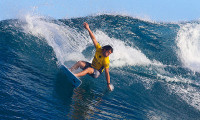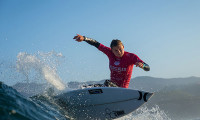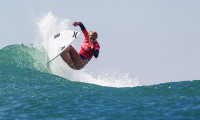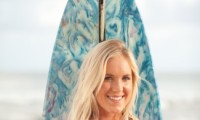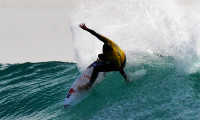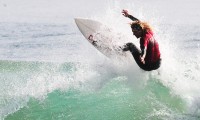When one thinks of surfing, what usually comes to mind are sandy beaches, blue waters, and an overall peaceful environment. God Went Surfing With the Devil, a film by first-time director Alexander Klein, was able to catch a glimpse of the rare exception.
God Went Surfing With the Devil will be showing at Victoria Hall on Saturday at 9:30 p.m. as part of this year’s Santa Barbara International Film Festival.
God Went Surfing with the Devil is a documentary that takes place in the midst of the Palestinian-Israeli conflict, exposing the real dangers that surfers in the region encounter.
In 2007, Alexander got wind of Surfers 4 Peace. Founded by renowned surf ambassador Dorian “Doc” Paskowitz, Arthur Rashkovan, David Paskowitz and nine-time world surfing champion Kelly Slater, their objectives are to bridge cultural and political gaps between surfers in the Middle East.
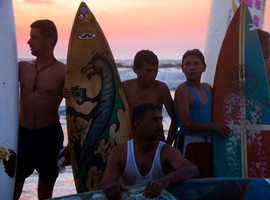
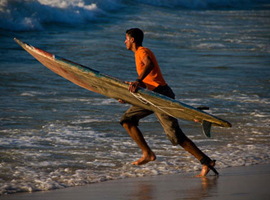
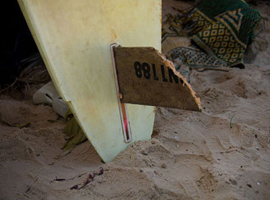
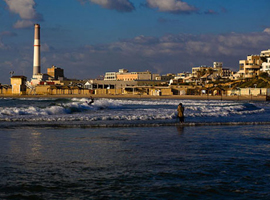 After Hamas took control of the Palestinian government in 2007, Israel imposed strict sanctions on the Gaza Strip, making it virtually impossible for the local surfers to attain their boards. Many of them went to great lengths to simply be able to ride waves.
After Hamas took control of the Palestinian government in 2007, Israel imposed strict sanctions on the Gaza Strip, making it virtually impossible for the local surfers to attain their boards. Many of them went to great lengths to simply be able to ride waves.
“They really didn’t have much stuff, some people had leftover boards and boards brought in prior to the siege…there’s a lot of money there.”
Surfboards are pretty expensive. There were about 20 guys sharing six or seven boards. They didn’t have surf trunks, leashes, or wax. There was even one guy who didn’t have a fin so he used a piece of jagged plywood. They made do with what they had.”
When the organization decided to smuggle 23 surfboards into Gaza in 2008, Alexander was all for it.
“I decided this would be a great time to cover the topic, and talk about surfing in Israel and Gaza,” Klein said, wanting to expose the world to the Palestinian plight. “Having young guys who really could be fighting each other are just trying to come together in the waves, and surf together and have fun.”
Although the Israelis and Palestinians could come together as one in the same ocean, the restrictions were still high. A barrier was set up in the water to prevent the two groups from coming into one another’s territory.
Where lifeguards would usually be instead stood soldiers fully clad in AK-47s, patiently waiting to shoot any trespasser. Although the stakes were high, camaraderie’s still developed past the sea and into the hearts of surfers.
“When we talked to most of the surfers on the Israeli side, a lot of them were soldiers and fighters in the army. When we talked to the Palestinian guys who dealt with so much violence and so much loss over the years, they want to be friends. They want to surf together, and they want to travel and see other countries. They were really full of peace; their lives were pretty simple. They have dealt with such a violent and tragic past, I think the young generation has a lot to look forward to for the future.”
The message Klein is trying to get across is pretty simple: to show the reality of the world around us.
“I want to show people what life is like and what people on the grounds are like. I wanted to tell their story. These surfers have a wonderful attitude; they are full of love and full of hope for the future. I think they are willing to get over battle with each other, I think that’s key to moving past the problems.”

